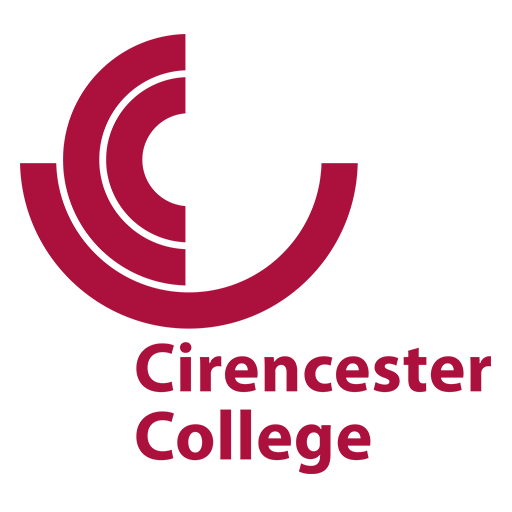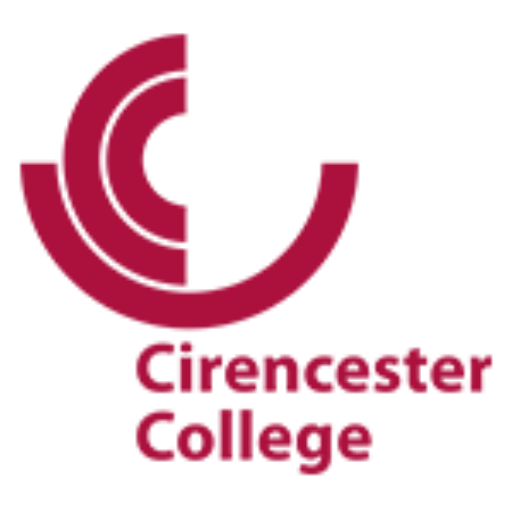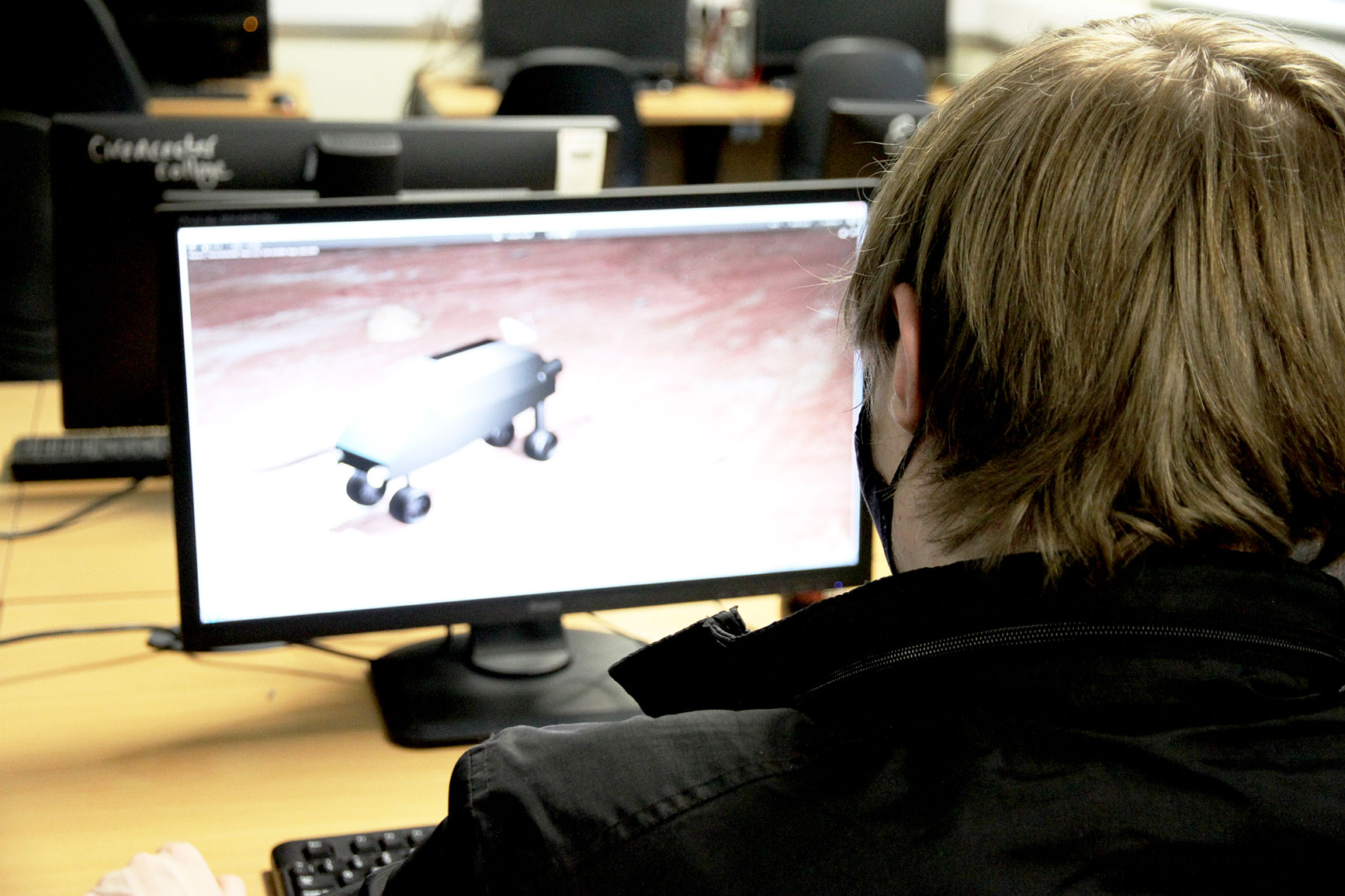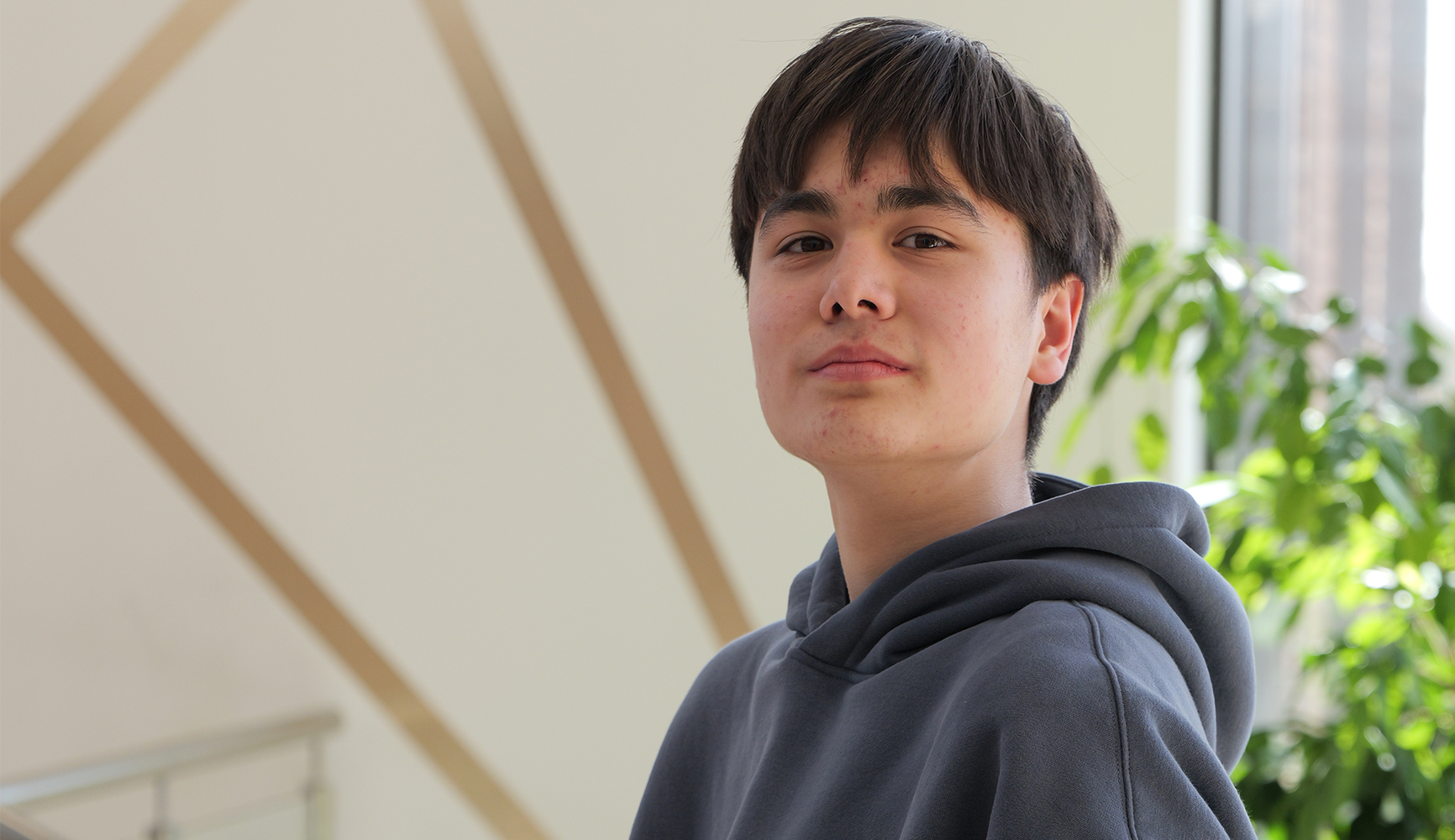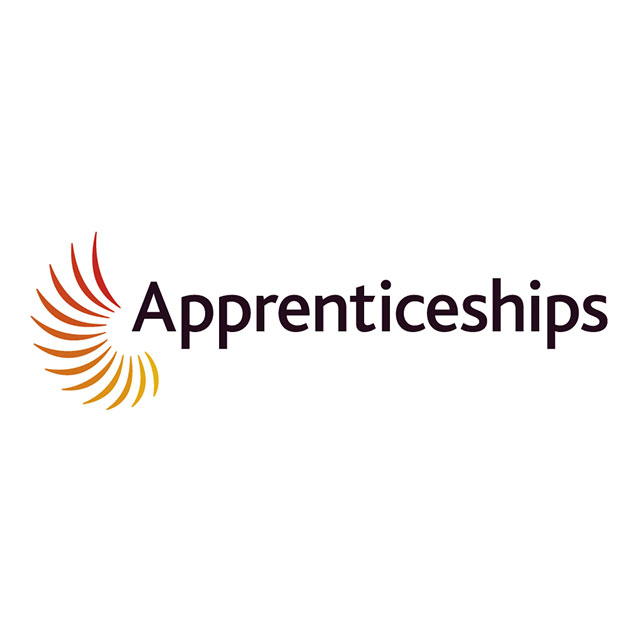DO NOT DELETE OR EDIT THIS ROW OR ITS CONTENTS

Do you enjoy coding and solving problems? If so, this T-level course is for you. Programming and problem-solving are some of the most sought after skills in the ever-growing digital industry. Whether you enjoy solving problems or coding for apps and games, this course can open the gate for you into this fantastic rapidly expanding industry. In this qualification you will learn to code in a range of different languages and understand how organisations develop software within the industry.
What will I study in Digital Software Development T-level?
The core part of the qualification will give you a baseline understanding of the industry. It covers a range of areas, giving you a vital underpinning knowledge of concepts and the skills that you’ll need in this sector. You'll spend the majority of the first year (9 hours per week) developing this knowledge.
The core elements of digital will cover a host of themes including the following:
- Problem solving
- Introduction to programming
- Emerging issues and impact of digital
- Legislation and regulatory requirements
- Business context
- Data
- Digital environments
- Security
Additionally, you will cover core digital skills such as problem solving, application design, and project management. You will spend 6 hours per week in the first year, followed by 15 hours per week in the second year working on these skills.
The specialist elements of digital will be covered through developing your skills:
- Planning a project
- Identifying and fixing defects in existing code
- Designing a solution
- Developing a solution
- Reflective evaluation
We focus this through Python programming to be accessible for everyone.
You will also complete a 315 hour Industry Placement which gives you valuable work experience and key behaviours to succeed in the industry. You will spend 3 hours per week in the first year helping you to understand and develop these key behaviours.
Entry Requirements
5+ GCSEs at Grade 4 or above from the core subjects, including English Language and Grade 5 in Maths
If you have completed GCSE computing we would expect at least a Grade 4 to show interest in the industry.
How will I learn?
The course splits into key knowledge, skills, and behaviours - We introduce a set of topics using an interactive project for students to explore best practices and syntax in a real activity. Each lesson contains a teacher-led lecture element to introduce a new concept followed by solo or group activities to explore this knowledge. This can take the form of a report, practical task, or group discussion.
For example: in our Legislation topics - students are provided with a series of "cases" and put into teams for and against. We then debate in a mock courtroom to understand the complexities of Digital Legislation and finally determine whether the defendant is innocent, or guilty! Alternatively, in Business Context, students look at emerging technology to create and showcase ideas to their peers in a friendly competition to attempt to win their investment.
For this specialism, we also cover programming in Python over a very wide range of skills such as using existing libraries effectively and building solid, working programs and interfaces to set task briefs.
How will I be assessed?
Your T-Level is made up of three components: Core, Specialism and Placement.
Core is made up of two written papers and a practical called the Employer Set Project (ESP). Core papers are sat at the end of first year and are 2-2.5 hours long. The ESP is broken down into several tasks and is assessed over two weeks and is sat in the November of second year. Core makes up 50% of your final grade and focuses on assessing your Knowledge and some Skills from the course such as: The impact of digitification on culture and inclusion; exploring digital in a business context; understanding and applying security principles; and applying root cause analysis and troubleshooting.
Specialism is assessed via an Occupational Specialism Project (OSP). This is a large practical project lasting roughly 30 hours broken down into several assessment tasks and sat over the second half of the second year. Specialism makes up 50% of your final grade and focuses on assessing your Skills and some Knowledge from the course such as: Planning for and designing a solution to a problem, fixing code and implementing additional requirements to improve the function, testing and appraising practices.
Placement is a mandatory part of the qualification, covered over 315 hours at a digital work placement. You need to show "good" levels of behaviours throughout your placement through a series of workplace reviews conducted by the college and your employer. Your course allows one day a week (set at the start of each year) and two two-week blocks per year to help support you with time to do this. Placement doesn't affect your grade, but is required to achieve the qualification as a whole, and is used to develop you Skills and Behaviours in the workplace.
Any trips?
Digital T-Levels have several educational and progressional events and trips throughout the course. This includes varies on fresh opportunities each year but will include a visit to RMC Retro - "The Cave", and visits to University providers for learning workshops and bespoke open days. Each of these trips is roughly £35 (some more expensive and some cheaper) and there will be up to three offered each year of the course.
Are there any costs involved?
There is a small course booklet that students should keep hold of with a small cost attached from our printing department. Course textbooks are available from the Library or for purchase on Amazon and highly recommended to succeed in this course. A computer/laptop isn't a requirement but access to one at home would be useful for revision and different tasks, study spaces are available for use at the college.
Device Requirements
Windows laptop (16GB RAM | Ryzen 5/Intel i5 12th Gen or above)
If you already own a device that meets the technical requirements of your course, you are welcome to bring it with you to college.
If not, more information on a convenient rental and help-to-buy scheme designed specifically for Cirencester College students is linked below.
FAQs
After the course our students find themselves open to lots of roles from full time employment, apprenticeships, or university to study Computer Science or Software Engineering. We have about a 50% split of students going into the workplace or off to university depending on their preferences, recently one of our students secured an apprenticeship with Lockheed Martin overcoming 2499 other applicants!
The industry placement is 315 completed over your two year course, the earlier you can complete these hours - the better! We deliver "employment ready" workshops in the first term, including practice interviews with hiring managers from big organisations, CV workshops and employability skills to prepare you for your time in the workplace. We then have placement days once per week where students are able to attend their placement, or spend time working on their CVs and contacting different organisations they are interested in working with. On top of this, we have two 2-week block placements where students are expected to work towards their placement hours each year.
To support you gaining your hours, we also have access to CISCOs Networking Academy, where students are able to complete courses and earn hours towards their 315 requirement. We have a team of people to help you find a placement, and it’s important that you liaise closely with them to start your placement as soon as possible.
T Levels are very practical qualifications. A good amount of time is spent in lab sessions in our leading edge facilities working on skills that will help you in the digital industry. However, there is a considerable amount of theory and knowledge that underpins these skills - equivalent to that of 3 A Levels, so you need to be ready to put in a good amount of effort both inside and outside of the classroom.
We have 18 hours of lessons per week, with an expectation of 10 hours self study per week to support your own learning.
The Digital T Level is equivalent to 3 A Levels and, as such, is sufficient for all progression routes, whether into higher education or apprenticeship/employment. So there is unlikely to be a need to study additional courses alongside the T Level.
If you have a specific request, please do discuss this with us. We always try to find a solution which provides the best programme of study for you and your progression.
The Digital T-level course is made up of three key parts.
- Core – The academic part of the qualification graded A to E. You will learn the under-pinning knowledge in this part of the course and study a range of topics. This is assessed by two 2.5-hour exams and an Employer set project (ESP) This Employer Set Project is set by the exam board but they have consulted with employers. This consists of are a series of tasks completed under exam conditions.
- Occupational Project – This is generally completed in the second year and is the vocational part of the qualification graded Pass, Merit, Distinction. Leaners specialise and complete a series of controlled assessments under exam conditions. These can range between 35 and 65 hours in total.
- Industry Placement - There is no grade for the placement but learners need to complete the required hours over two years with a maximum of two employers.
To help with this, I like to use the "Rubik's Cube" test:
Imagine a friend or family member asks you to help them because they're struggling to complete a rubik's cube. How you would help them is a good indicator of which course is better for you. Do you A) take the cube off them and complete it in the fastest, most efficient way possible to give them back a finished cube? Or B) sit them down and show them how to solve the cube, explaining the steps and methods used to do it?
If you said A, you'll love our Software Development course. B is a good indicator for the Cyber Security course. There is a secret option C, if you're the kind of person who takes all the stickers off or paints the cube the "right" colours, you'd also like the Cyber course.
Disclaimer - you don't have to be able to complete a rubik's cube to come onto the course, but the approach is what's important here.
If you don't have the grades - don't panic just yet! We have a great foundation year option where you can start to work on your digital skills whilst also having some time for those pesky Maths and English requirements. Students who show the required Knowledge, Skills and Behaviours in our Level 2 Foundation Year will transition nicely onto our T Level the following year.
Awarding Body
Pearson
Available As
[168 UCAS pts. available]

Add to Application
What can I do after I have taken this course?
Available As
[168 UCAS pts. available]

Add to Application

DO NOT DELETE OR EDIT THIS ROW OR ITS CONTENTS
What the students say
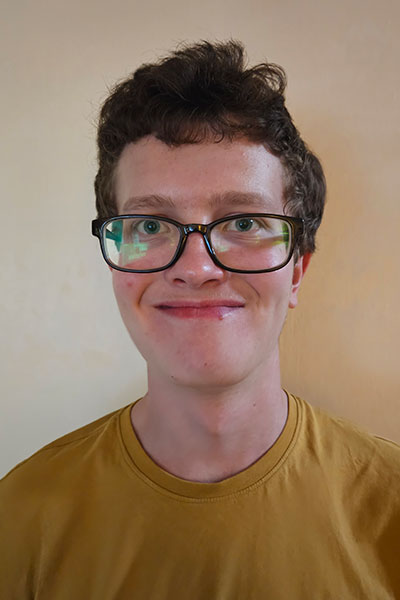
”Ben studied Digital: Design, Production and Development as part of our second cohort of T-level students between 2021-2023. He did his industry placement at Savient, a software development and consultation company based in Cheltenham. He had a number of responsibilities, such as working on outreach projects, creating websites, and developing software that the company would take into schools to teach students about careers in IT. “I think my work placement has prepared me very well for a career in the industry”, said Ben, “I have learnt how to apply what I’ve learnt in class at work, and build on key skills such as communication.” Ben achieved a Merit in his T-level and has since started a Level 4 Software Development apprenticeship at Savient.
Ben
”Eamon is a Year 2 student currently studying Digital: Design, Production and Development. He chose the T-level because he enjoys programming, and wanted to do a course that would prepare him for work, but also for university. Eamon has completed industry placements at St James’ Place and Renishaw, where he worked on programming, excel and phishing campaigns. Speaking on his time on placement, Eamon said “At first, I found asking for work tricky, but I soon knew who I had to ask and found the confidence to do so. Placement also helped me develop my time management, communication, and organisation skills.” Eamon is now looking forward to his next steps after College!
Eamon


”I like focusing on one course, studying it and practicing right away. In my opinion it is the best way to learn and memorise. I love the course because I have a passion for the industry.
Margaryta
